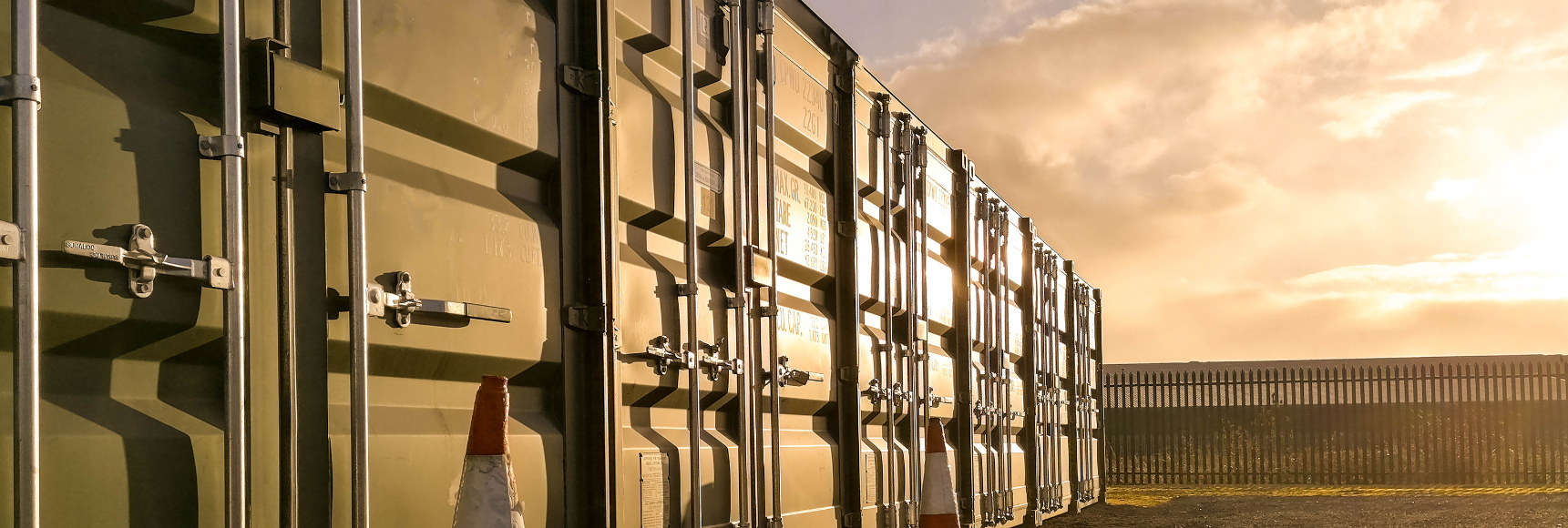
Compare Steel Storage Container Prices in 2025
When businesses need secure, durable, and portable storage solutions, steel storage containers are the go-to choice. Originally designed for transporting goods across oceans, these rugged units have found widespread use across industries such as construction, retail, education, manufacturing, and agriculture. Whether you need on-site storage for equipment, excess inventory, or temporary office space, steel containers provide a safe and cost-effective solution. This guide will walk you through everything you need to know about buying a steel storage container for your business.
Featured Answering Service Providers

Conexwest

USA-Containers

Sea Box
Conex Box Pricing
There are a variety of items that will impact the cost of renting or buying a conex box, such as:
- Shipping container size
- Length of rental
- Purchasing vs. leasing
- Delivery and setup
- Custom features
- Electric and water hookups
Storage Container Sizes
In general storage containers are available as small as 10 feet to as large as 53 feet. Find any size steel storage container and get fast delivery no matter where you’re located.
10’ Shipping Containers
20’ Shipping Container
24’ Shipping Container
40’ Shipping Containers
45’ Shipping Containers
53’ Shipping Containers
Popular Types of Containers
From refrigerated storage containers to keep food cold to steel storage containers for storing property, we can help you find any type of container.
Cost Options
If you’re wondering how much a storage container costs we’ve got your answers. Rather you’re renting a shipping container for three months or looking to buy one, will help you get a great price from a trusted supplier near you.
- Rent Shipping Containers
- Buy Metal Storage containers
- Used Shipping Containers
Common Uses
Shipping containers can be used for temporary office space, workshops, and all types of secure storage solutions.
- Shipping Container Workshops
- Shipping Container Office
- Shipping Container Restaurant
- Steel Storage Containers
FAQ’s
How much does a shipping container cost?
How Much Does a 20’ Shipping Container cost?
Steel Storage Container Costs
The cost of steel storage containers varies based on size, condition (new vs. used), modifications, and delivery fees. Here’s a general pricing breakdown:
| Container Size | New Price Range | Used Price Range |
|---|---|---|
| 10′ | $2,500 – $4,000 | $1,500 – $3,000 |
| 20′ | $3,000 – $5,500 | $2,000 – $3,800 |
| 40′ | $4,500 – $8,000 | $2,800 – $6,000 |
| 40′ High Cube (9’6″ height) | $5,500 – $9,500 | $3,500 – $7,000 |
🔹 Delivery Costs: Expect $150–$500 depending on distance.
🔹 Customizations: Add 10%–50% extra for features like doors, windows, insulation, or HVAC systems.
Buying Guide: How to Choose the Right Steel Storage Container
When selecting a steel storage container for your business, consider the following:
- Size Needs: 10′, 20′, and 40′ are the most common options. Choose based on what you need to store.
- New vs. Used: New containers offer pristine condition but cost more. Used (often “one-trip”) containers can offer excellent value if appearance and minor dents aren’t an issue.
- Condition Grading: “Cargo Worthy” (CW) is ideal for shipping; “Wind and Watertight” (WWT) is suitable for storage.
- Security Features: Look for containers with lock boxes or the ability to install heavy-duty padlocks.
- Delivery Access: Make sure your site is accessible by truck and that you have enough space for unloading.
- Modifications: Determine if you need ventilation, shelving, or custom doors, and confirm whether you can add them yourself or need factory-installed mods.
- Rental vs. Purchase: Renting can be a smart short-term solution; purchasing saves more in the long term.
Comparison Table: Steel Storage Containers
| Feature | New Container | Used Container | Rental Container |
|---|---|---|---|
| Price | $$$ | $$ | $ |
| Appearance | Pristine | Some dents/surface rust | Varies |
| Lifespan | 25+ years | 10–15 years | N/A |
| Ideal For | Shipping, Long-term storage, Offices | Storage, Temporary use | Short-term projects |
| Modifications | Easier to customize | Possible but may require extra prep | Limited |
FAQs About Steel Storage Containers
Q: How long do steel containers last?
A: With proper care, a new container can last 25 years or more. Used containers generally last 10–15 years depending on previous use and exposure.
Q: Can I modify a steel storage container myself?
A: Yes! Many businesses add windows, HVAC units, shelving, and security upgrades. Just ensure you follow proper cutting and welding practices to maintain structural integrity.
Q: Do I need a permit for a container on my property?
A: It depends on your local zoning laws. Some areas require permits for containers left in place for more than 30 days.
Q: How much space do I need for delivery?
A: Standard delivery trucks need at least 100 feet of clearance to properly back in and offload. Make sure there’s firm ground to avoid sinking.
Q: Are there financing options available?
A: Many dealers offer financing or lease-to-own programs, especially for new and modified containers.
Top Steel Storage Container Brands
When it comes to trusted names in steel storage containers, these brands stand out:
- Maersk Containers: Industry giant known for high durability and quality control.
- CIMC (China International Marine Containers): One of the largest manufacturers globally, offering both standard and custom containers.
- Florens: Specializes in leasing and selling robust containers ideal for storage and shipping.
- Sea Box: US-based manufacturer offering specialty containers for military and commercial uses.
- Triton International: Renowned for its global leasing fleet and new container sales.
About the Author
Written by:
Jason Turnley – Commercial Storage Solutions Expert
Jason Turnley has over 26 years of experience in the commercial storage and transportation industry. As a long-time consultant and advisor, Jason has helped hundreds of businesses secure cost-effective storage solutions. He is a proud content contributor for Kwote Advisor, specializing in helping companies make smarter purchasing decisions.
